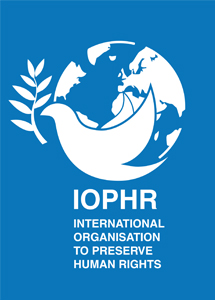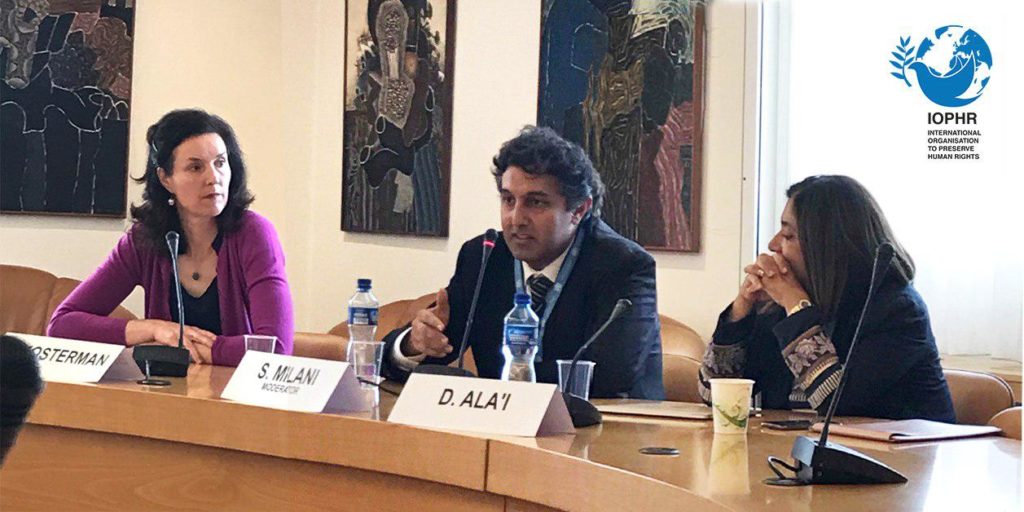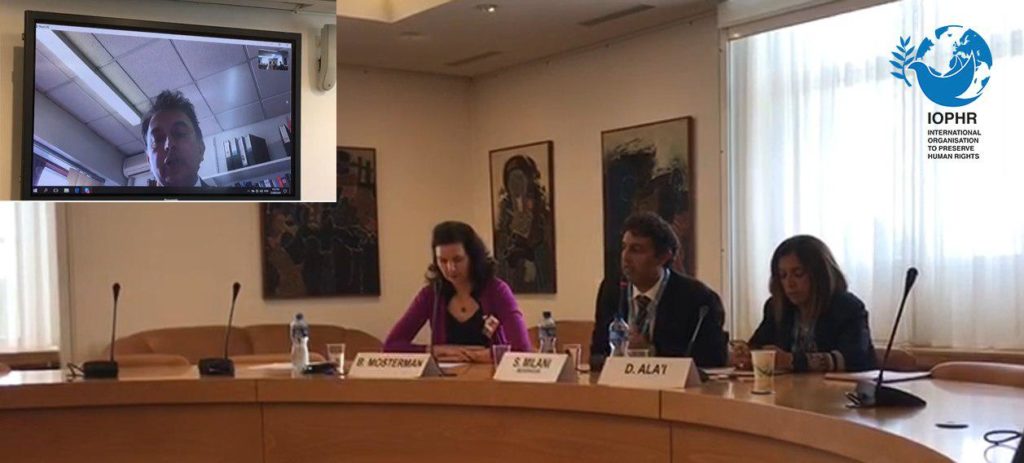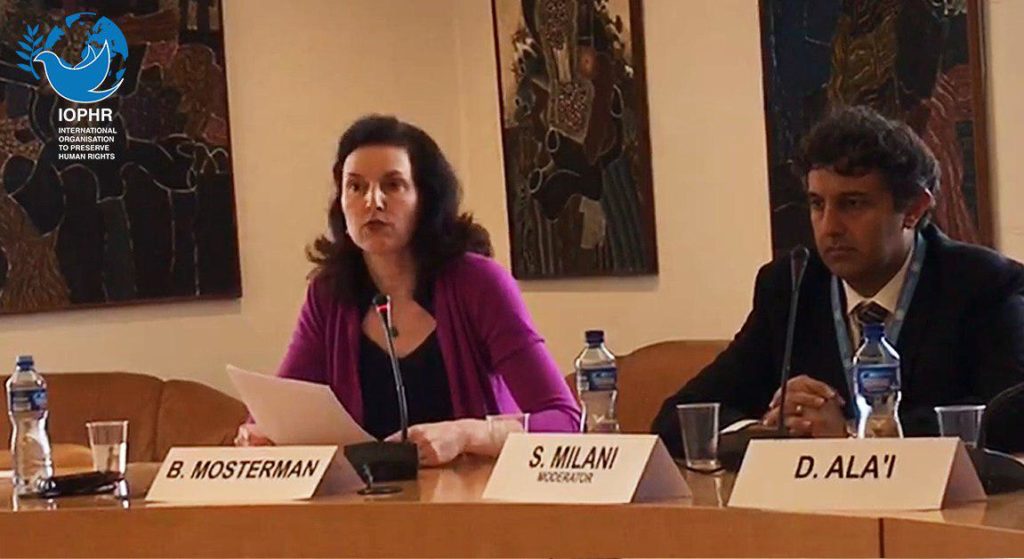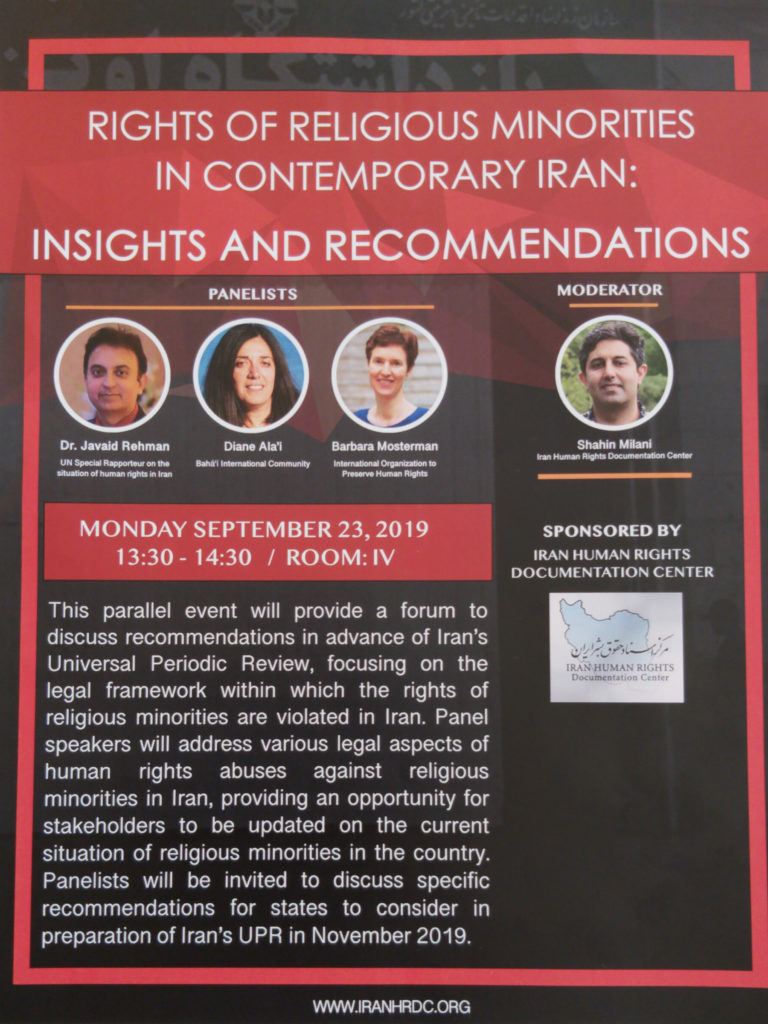23 September 2019 – The UN Human Rights Council in Geneva held an open meeting on the Iranian regimes’ violations of rights of religious minorities which was sponsored by the Iran Human Rights Documentation Centre (IranHRDC).
The gathering was attended by Professor Javaid Rehman, UN special rapporteur on human rights in Iran, Ms Diane Ala’i who is representative of the Baha’i international community to the UN, Ms Barbara Mosterman, representative of IOPHR (International Organisation to Preserve Human Rights ) and Mr Shahin Milani moderator of the meeting and member of IranHRDC.
Professor Rehman spoke (via Skype) and set out a series of recommendations in his speech that the Iranian regime must follow in order to fulfil its obligations as a signatory to the UN Human Rights Charter. Professor Rehman also highlighted many facts regarding the discrimination and persecution of religious minorities by the Iranian government in practice through its discriminative constitutional law.
Ms Ala’i, in her speech highlighted the plights of Baha’i’s and discrimination and oppression they face on a daily basis living in Iran, which extends from being excluded from government jobs, university educational programs and scholarships to general suppression by the Iranian regime. Ms Ala’i also stressed on the importance of looking at the ongoing oppression of religious minorities in Iran and reminded us of an important statement of the late special rapporteur on freedom of religion or belief, Abdelfattah Amor that “it is not up to a state to decide what is religion and what is not”.
Ms Mosterman in her speech stated that: “Unfortunately, the human rights situation in Iran not only is not improving, but it’s steadily deteriorating. Especially, when it comes to the rights of ethnic and religious minorities, even though most of these groups are not involved in any political activity. One only needs to have a brief look at the situations faced by few religious minorities such as: the Gonabadi Sufis, the Iranian Sunnis, Christian converts and Baha’i citizens, in order to appreciate the dismal situations they are faced with, on a daily basis.”
She then went on to highlight the conditions faced by Gonabadi Sufis in Iran where she outlined the imprisonment of both men and women Sufis in very harsh conditions simply because of their faith, which is based on peace, love and tolerance regardless of other beliefs, and also the daily acts of suppression they face such as exclusion from governmental jobs, university places to the house arrest, exile and poisoning of their 91 year old spiritual leader Dr Noor Ali Tabandeh. She then summarised the human right situation in Iran by saying: “The story of oppression in Iran is not only about the Sufis, but also concerns any group of people that doesn’t adhere to “the extremist Islamic interpretation of the Iranian Government”.
